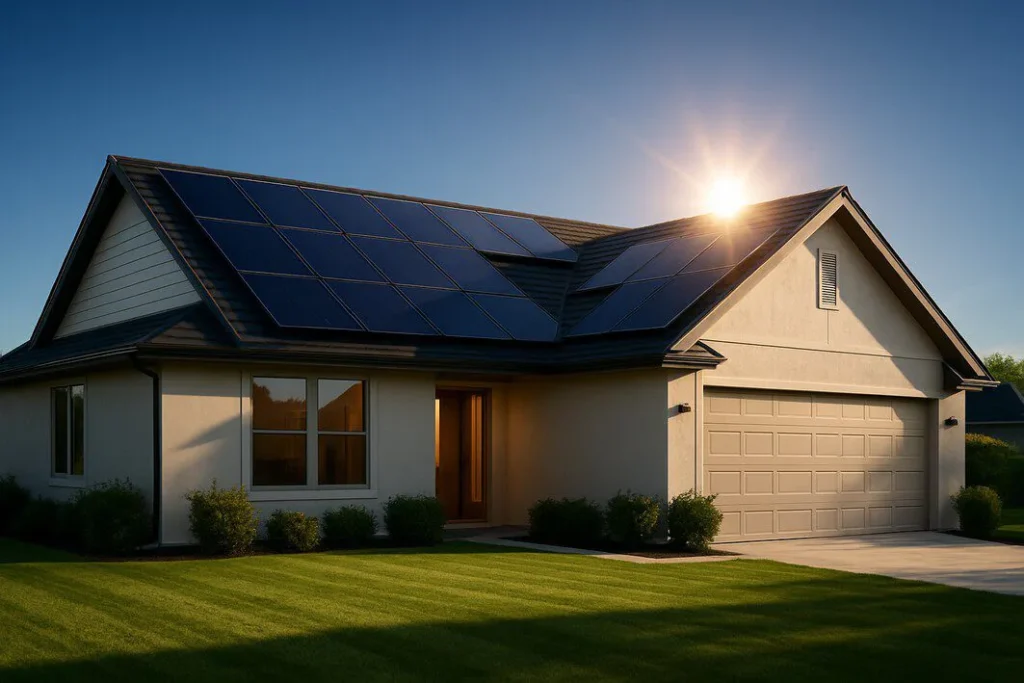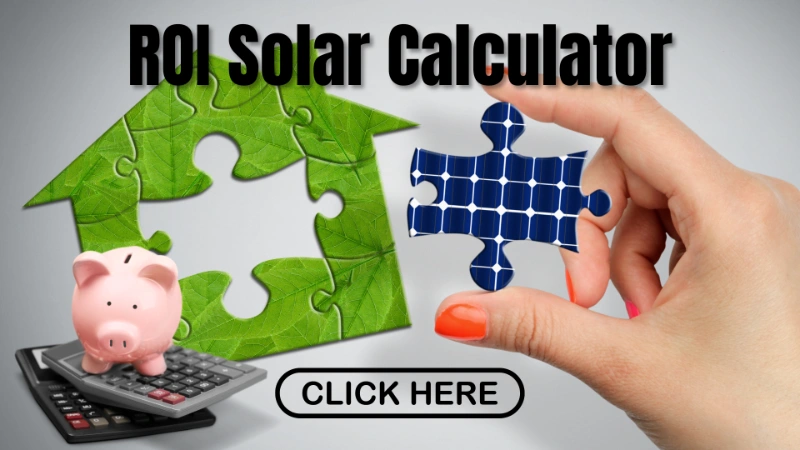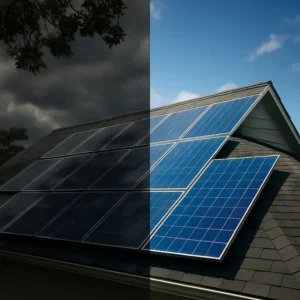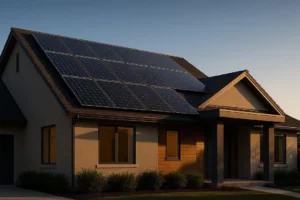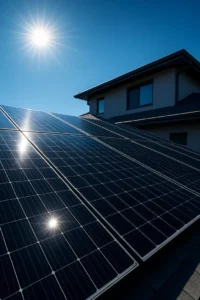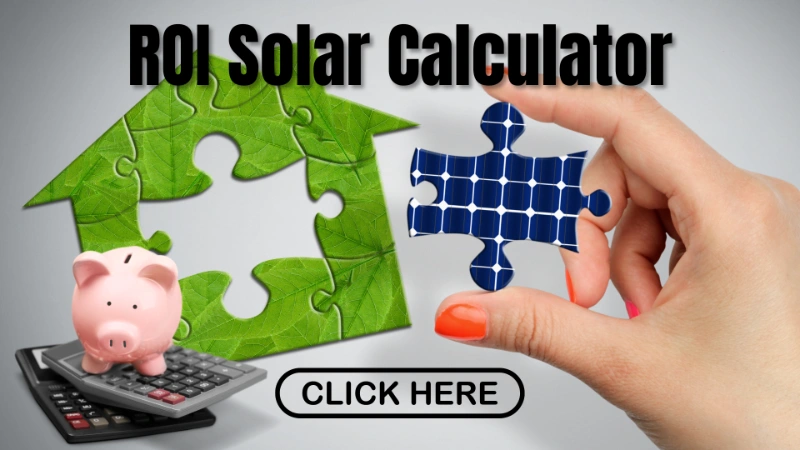For homeowners considering a switch to clean energy, the most pressing questions are often financial. Is switching to solar power a sound financial decision? More specifically, are solar panels a good investment for your home? The answer lies in understanding the solar panel return on investment (ROI), a crucial metric that determines how quickly and effectively your system pays for itself and starts generating pure profit.
Table of Contents
This comprehensive guide is designed to demystify solar ROI. As a leader in residential solar solutions, RenewGenius is committed to providing a comprehensive solar knowledge base to empower you. We’ll break down what the ROI of solar energy really means, show you how to calculate it, and explore the key factors that can lead to significant long-term savings. By the end, you’ll be able to confidently determine if solar is the right move for your financial future.
What is Solar Panel Return on Investment (ROI)?
At its core, solar panel return on investment is a performance measure used to evaluate the efficiency of your solar energy investment. It calculates the financial benefit (the “return”) you receive relative to the initial cost of the system. In simple terms, it answers the question: “For every dollar I spend on my solar panels, how much money will I get back?”
A positive ROI means your system will not only pay for itself over time through electricity savings but will also generate additional value for years to come. This makes it one of the most important calculations for any homeowner to consider.
Are Solar Panels a Good Investment in 2024?
For the vast majority of homeowners in the United States, the answer is a definitive yes. Solar panels are a fantastic investment with multiple layers of financial and personal benefits. While the initial outlay is significant, the long-term gains often far outweigh the costs.
Here’s why a residential solar system is one of the smartest upgrades you can make for your home:
- Drastic Reduction in Electricity Bills: Generate your own power and dramatically lower or even eliminate your monthly utility bill.
- Increased Home Value: Studies consistently show that homes with solar panel systems sell for more than comparable homes without them.
- Protection Against Rising Energy Costs: Lock in your energy costs and protect your budget from volatile and ever-increasing utility rates.
- Significant Government Incentives: Take advantage of federal, state, and local tax credits and rebates that can slash the upfront cost of your system.
How to Calculate Your Solar Panel ROI
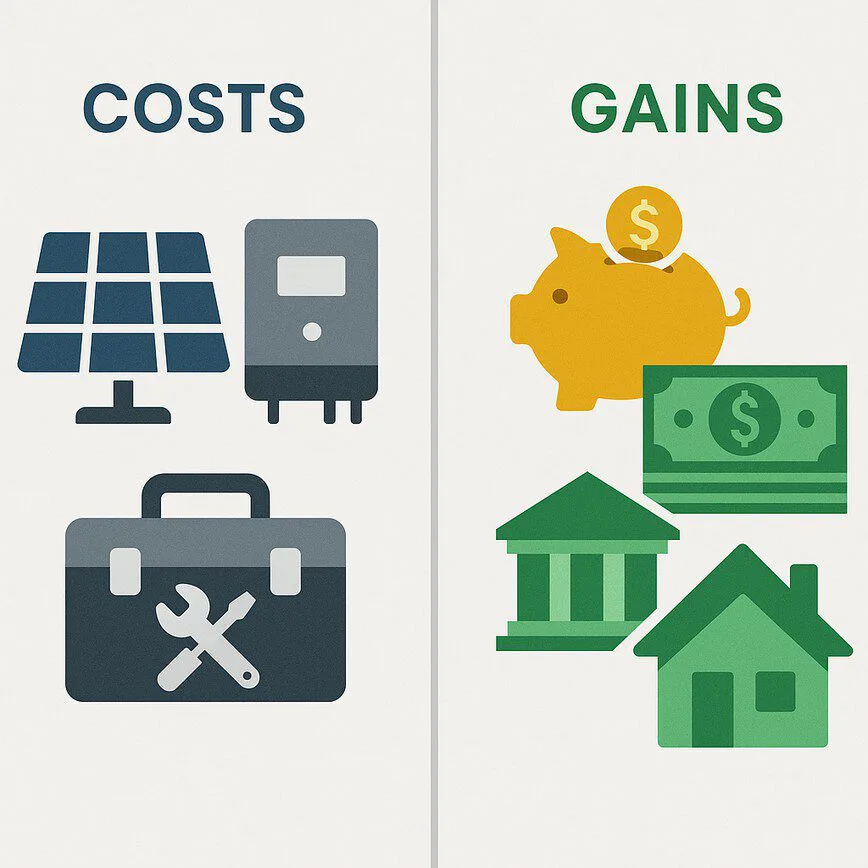
While a precise calculation requires a personalized quote, understanding the basic formula is straightforward. It gives you a clear picture of the financial mechanics at play.
The formula is: ROI = (Total Financial Gains – Total System Cost) / Total System Cost
Let’s break down each component.
Calculating Your Total System Cost
This is the total amount you spend to get your solar system up and running.
- Equipment: The cost of the solar panels, inverters, mounting hardware, and wiring.
- Installation: The labor costs for a certified team to install the system on your roof.
- Permitting & Fees: The cost of local permits and inspections required for the project.
- Maintenance (Optional): While modern solar panels require very little maintenance, it’s wise to budget a small amount for potential cleaning or servicing over their 25+ year lifespan.
Calculating Your Total Financial Gains
This includes all the money your system saves and earns you over its lifetime.
- Lifetime Electricity Savings: This is the biggest contributor to your ROI. It’s the total amount you would have paid to the utility company over the next 25-30 years if you didn’t have solar.
- Federal Solar Tax Credit (ITC): This is a powerful incentive that allows you to deduct a significant percentage of your system’s cost from your federal taxes.
- State & Local Rebates: Many states, municipalities, and even local utility companies offer their own rebates or tax credits that further reduce the initial cost.
- Increased Property Value: The premium your home gains from having a solar installation.
Key Factors That Influence Your Solar ROI
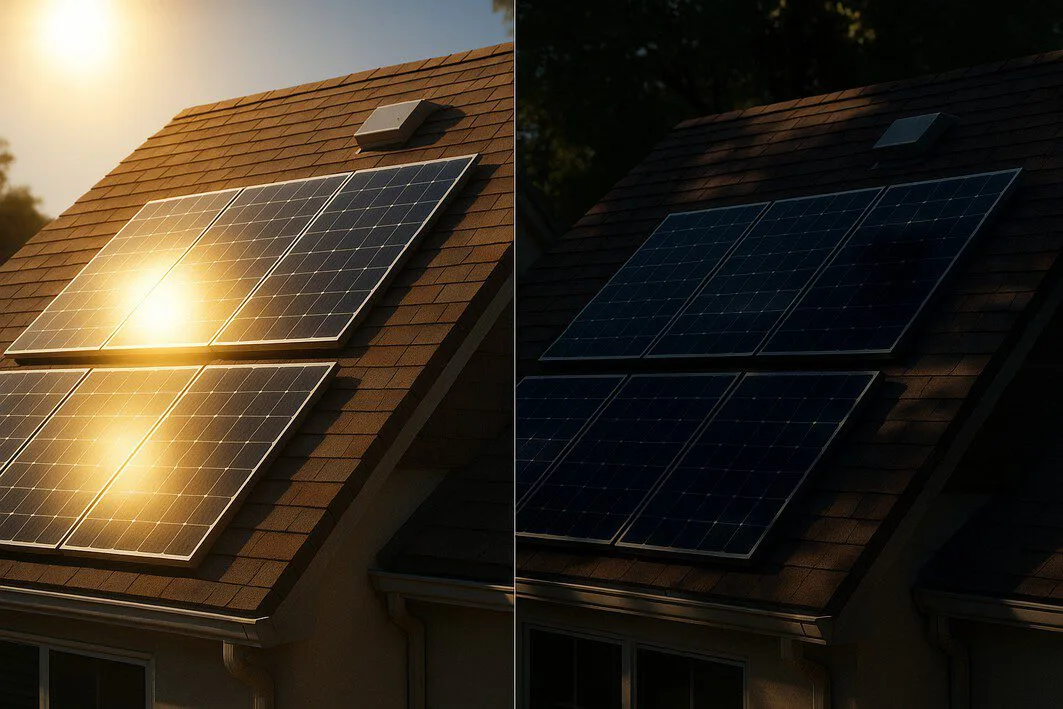
Your personal solar ROI isn’t a one-size-fits-all number. It’s influenced by several unique factors related to your home and location.
- Your Location and Sunlight Exposure: The amount of direct, unobstructed sunlight your roof receives each day (your “sun hours”) is the single most important factor. A home in sunny Arizona will naturally generate more power, and thus a faster ROI, than a home in a cloudier region like Seattle. The orientation and angle of your roof also play a critical role.
- Your Current Electricity Rates: The higher your current electricity bill, the more money you stand to save. Homeowners paying high cents per kilowatt-hour (kWh) to their utility will see a much faster payback period and a higher overall ROI because every kWh their panels produce is worth more.
- The Cost of Your Solar System: The final price tag of your installation directly impacts your ROI calculation. This cost is determined by the system’s size (measured in kilowatts), the quality of the panels and inverters you choose, and the installer’s pricing.
- Available Solar Incentives and Rebates: Taking full advantage of programs like the federal ITC and any available state incentives is crucial for maximizing your return. These programs directly reduce your “Total System Cost,” which has a massive positive effect on your ROI percentage.
What is a Good ROI for Solar Panels?
So, what kind of numbers should you be looking for? While it varies by state, a good ROI for solar panels is typically anything over 10% annually, with many homeowners seeing returns as high as 20% or more.
Another way to look at this is the “solar payback period“—the time it takes for your accumulated savings to equal your initial investment. On average, the payback period for a residential solar system in the U.S. is between 8 and 12 years. Considering the panels are warrantied for 25-30 years, that leaves you with 15+ years of generating virtually free electricity.
Ready to Calculate Your Personal ROI?
The best way to understand what the ROI of solar energy would be for your specific home is to use precise, localized data. General estimates are helpful, but a personalized calculation gives you the actionable insight needed to make a confident decision.
At RenewGenius, we’ve developed a powerful tool to help you do just that. Our platform is built on a comprehensive solar knowledge base and is exclusively focused on residential solar solutions, ensuring the information is tailored directly to you, the homeowner. To see what your savings, payback period, and 25-year profit could look like, use our comprehensive Solar Panel Return on Investment calculator. This tool is a core part of our mission to help you make an informed decision with confidence.
The Final Verdict: Is Solar a Smart Move for You?
For homeowners with suitable roofs in areas with moderate to high electricity rates, solar panels are not just an environmentally friendly choice—they are one of the most secure and profitable home improvements you can make.
By understanding your potential solar panel return on investment, you move from wondering if solar is worth it to knowing exactly how it will benefit your bottom line. It’s an investment in your property, your financial stability, and a cleaner future.

